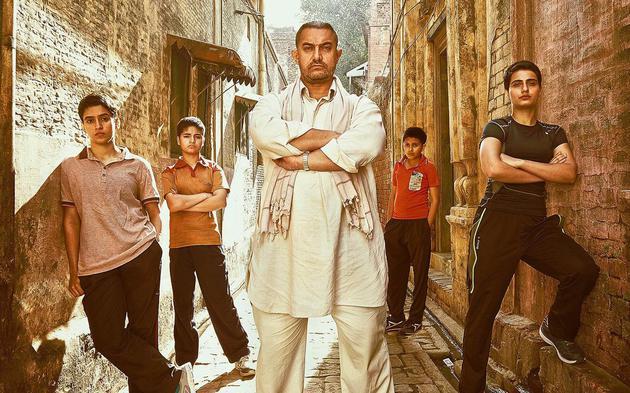China Fears India May Be Edging It Out in Culture Battle
《摔跤吧!爸爸》折射中印软实力较量
By AMY QIN October 9, 2017
BEIJING—One of the most popular movies in China over the summer ran 161 minutes, so long that it was sometimes shown with an intermission. Unlike Hollywood blockbusters, there were no special effects, speeding cars or epic battle scenes. Nor was the film a Chinese production with a Chinese cast.
北京—今年夏天在中国最火的一部电影时长161分钟,长到放映过程中有时会有中场休息的程度。不同于好莱坞大片,这部电影里没有特效,亦没有飞驰的汽车或史诗般的战争场面。它也不是由中国出品的,演员表上根本没有中国人。
Instead, it won over audiences with a simple but powerful tale: the true story of a man's quest to train two daughters to become world-class wrestlers—in India. Featuring the Bollywood star Aamir Khan, "Dangal" was India's first big hit at the Chinese box office.
帮它赢得观众的是简单但却动人的故事:一个男人希望把两个女儿培养成世界级摔跤手,一个发生在印度的真实的故事。由宝莱坞明星阿米尔·汗(Aamir Khan)领衔主演的《摔跤吧!爸爸》(Dangal),是第一部在中国取得巨大票房成功的印度影片。
While China's film industry has long sought both to emulate and compete with Hollywood, the runaway success of "Dangal" has prompted Chinese production companies to turn their gaze from West to East.
中国电影业一直以效仿和赶超好莱坞为目标,但《摔跤吧!爸爸》的巨大成功,已经引得中国制作公司把目光从西方转向东方。

Under Prime Minister Narendra Modi, India has made it a priority to increase its cultural influence around the world. The country has sought to burnish its spiritual image by promoting itself as the birthplace of Buddhism and yoga. Indian novelists and poets have gained global name recognition around the world, even in China. There is also Bollywood, which has put Indian filmmaking on the map.
纳伦德拉·莫迪(Narendra Modi)总理治下的印度,把提升本国在世界上的文化影响力作为头等大事。印度一直试图通过以佛教和瑜伽诞生地的名头来突显自己的精神特质。印度的小说家和诗人在世界范围内极具知名度,其中也包括中国。印度还有个宝莱坞。宝莱坞为印度的电影制作业博得了盛名。
Similarly, China has made no secret of its soft power ambitions. The outcome of its most ambitious soft power project to date—President Xi Jinping's $1 trillion One Belt, One Road initiative—remains to be seen.
中国同样毫不掩饰其提升软实力的雄心。中国迄今为止最雄心勃勃的软实力项目,是习近平主席的总投资将达1万亿美元的“一带一路”计划让人拭目以待。












